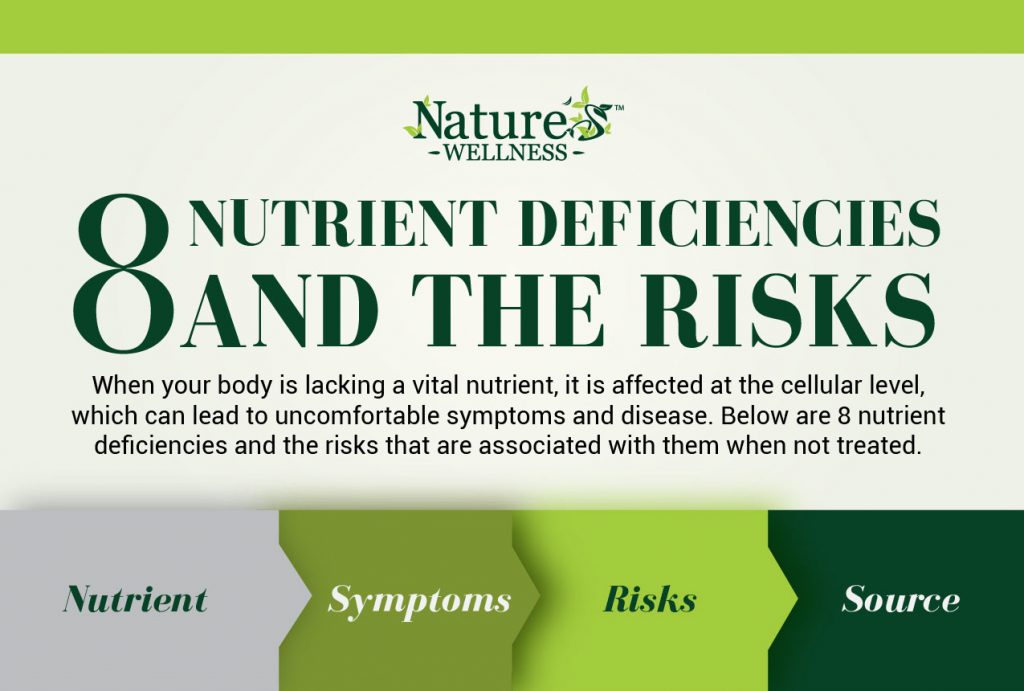When your body is lacking a vital nutrient, it is affected at the cellular level. Our bodies need the perfect balance in order to function properly. In a single day, there are numerous processes that must run completely and without a hitch. A few of these processes include digestion, water balance and nerve signaling, among many others. Not to mention that being deficient in a nutrient puts you at risk of diseases. This wouldn’t be the first time that we heard of a calcium deficiency leading to osteoporosis. While everyone is different, everyone should be aware of what their body is in need of. From Vitamin D which plays a major role in keeping your bones strong and healthy to Vitamin E that supports brain health, there are many supplemental nutrients that can be wildly beneficial if added to your daily regime. Here are 8 vital Nutrients and how to ensure you are getting your proper dose.
Vitamin D: Your best source of vitamin D is through supplemental pills and fortified milk. While some foods contain this vital nutrient, including salmon, egg yolks and tuna, it is in modest amounts. Regular sun exposure stimulates the skin to produce natural vitamin D as well. Just be sure to wear sunscreen.
Potassium: It is recommended to get your potassium naturally. Fruits and vegetables high in potassium are bananas, sweet potatoes, avocados and beets. Animal protein sources include chicken, cod, and pork.
Vitamin B12: Especially important for vegans and vegetarians, it is beneficial to get vitamin B12 through supplemental pills and diet. Animal sources that are high in B12 include fish, chicken and milk. Vegans should opt for either a supplemental or non-dairy milk and soy based meat substitutes.
Iron: It is beneficial to take iron in either pill form or through diet. Non-heme iron sources come from lentils, spinach, turnips and broccoli. However, the best source of heme iron is red meat.
Omega 3 Fats: Along with increasing your omega-3 intake with supplements and diet, you must also limit your omega-6 intake – the ideal ratio is 1:1. Krill oil is a great supplemental form of Omega-3 and food sources include fish, chia seeds and walnuts.
Vitamin A: Retinol is preformed vitamin A and it is ready to be used by your body where, beta-carotene is pre-vitamin A and needs to be converted by your body to retinol before use. Retinol is found in liver, butter and poultry and beta-carotene is found in dark orange or green fruits and vegetables such as carrots, sweet potatoes and kale.
Folate: Folate supplements are often combined with other B vitamins, such as B complex. Animal sources high in folate include eggs, liver, pork and shellfish. Great plant sources are brussels sprouts, tomato juice, mushrooms and asparagus.
Vitamin E: To ensure proper dose of vitamin E, it is important to make smart dietary choices. An especially important source is wheat germ oil but it can be found in pecans, sunflower seeds and broccoli as well.
Often times, it is easy to become deficient in a nutrient due to poor diet or a recent round of antibiotics. On top of this, signs and symptoms can be easy to go unnoticed. After all, it is not uncommon for fatigue and a gray hair to seem like a normal occurrence due to a stressful week at work. This is why it is very important to listen to your body. Be sure that you are eating a well-balanced diet and if you feel that something is off and you need a little extra help, there are great dietary supplements out there that can do the trick. Just be sure to check with your doctor before deciding to add anything to your daily regime.
